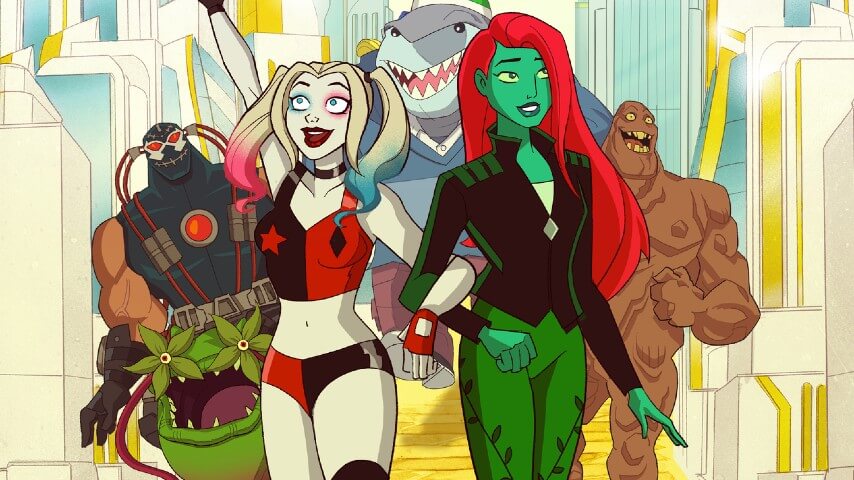The Worst Reviewed Games Of 2024

Although 2024 was a quieter year for big releases, it still had some fantastic games. But, at the other end of the spectrum, it had its fair share of stinkers too. Of course, reviews are and always have been objective critiques and whatever you might think of a game is your own opinion. You might have even played and enjoyed some of the games on this list – we all have guilty pleasures, right? But honestly, there were some really bad games released in 2024 that we definitely recommend you avoid…
Five - Mediocre
Looking at IGN’s official review scale, fives are considered ‘Mediocre’ games – the “kind of bland, unremarkable games we’ve mostly forgotten about a day after we finish playing.” They’re far from the worst games on the list and aren’t even necessarily “bad” (that’s 4s and lower), but you’re going to have to work hard to get any real fun out of them..
As the most populous score on this list, you’ll find a variety of different games. There are games like Slitterhead, an absurd action-horror game from a team of ex-Silent Hill veterans where humans must fend off parasitic monsters. Sounds fun but unfortunately it’s just dull. Similarly, Terminator: Dark Fate - Defiance takes the war against Skynet (great!) and turns it into a mediocre RTS (not so great).
There was also a string of bland strategy games like Millennia, which our reviewer called “Civilization at home” after the McDonald’s at home meme; Sins of a Solar Empire 2, which is a lacklustre sequel to the 2008 4x game in space; and Homeworld: Vast Reaches. Not to be confused with Homeworld 3, Vast Reaches is instead a strategy game built for VR, but feels more like a tech demo than a full game.
There were also several disappointments that received a 5. Games many of us were eagerly looking forward to only to be let down by the final product. The First Descendant is a gorgeous-looking live-service shooter that unfortunately is more looks than substance, and the Until Dawn remake barely justified its existence over the excellent choose-your-own-adventure horror game original.
Developer Supermassive Games didn’t have better luck on The Casting of Frank Stone, a Dead by Daylight spinoff based around one of the killers from the popular online horror game. The sub-six-hour horror adventure is hardly scary and adds nothing to the lore of Dead by Daylight according to our reviewer.
The viral hit Bodycam – which captivated audiences thanks to a trailer featuring super-realistic graphics that looked like footage from a police bodycam – was also more sizzle than steak as the actual game was nothing close to what we saw in the trailer.
Perhaps most noteworthy is Suicide Squad: Kill the Justice League, which was also one of the first 5s IGN handed out this year. We waited almost a decade for a new game from Batman Arkham developers Rocksteady, and sadly the wait was not worth it. Many were already bummed to hear Rocksteady was not developing a new Batman game but rather a Suicide Squad game, but that could have had potential given how fun and zany those characters are. It could have been Rocksteady’s chance to spread its wings and move away from the grimdark Arkham-verse and go for a more colorful route. But ultimately what we got was kind of a letdown, let’s be honest.
Forgoing the single-player goodness of the Batman games, Rocksteady ventured into the world of live-service with a squad-based looter-shooter in which players and friends team up as members of the Suicide Squad like Harley Quinn, Deadshot, Captain Boomerang, and King Shark. Unfortunately there just wasn’t enough of anything to makeSuicide Squad satisfying. The beloved combat from the Arkham games was completely absent, swapping crunchy melee for running-flying-shooting gameplay that felt okay, nothing more. Even looter-shooter fans would find the missions in Suicide Squad repetitive and bland. A forgettable experience from the decorated developers at Rocksteady.
Another big miss was Mario & Luigi: Brothership. The newest entry into the Mario & Luigi series developed specifically for the Nintendo Switch “misunderstands what made the Mario & Luigi series great,” according to IGN’s reviewer. The first original Mario RPG to be released this year alongside remakes of Super Mario RPG and Paper Mario: The Thousand-Year Door, Brothership has none of their charm and plenty of drawbacks such as the “ridiculously chatty dialogue, overbearing hand-holding, and boring, runtime padding fetch quests.” Bummer.
Rounding out the rest of the 5s is Test Drive Unlimited Solar Crown, whose original spearheaded the concept of online MMO racing games, but this sequel completely ignores any single-player content in favor of an annoying online-only strategy. There’s also a new SpongeBob Squarepants: The Patrick Star Game, which tries to revive the classic mascot platformer to middling effect, while Unknown 9: Awakening was a "routine action adventure game that probably wouldn’t blow me away even if it was well executed,” according to our review. And let’s not forget Kong: Survivor Instinct, a weird Metroidvania-style game in which you play as a human trying to survive in a city that Kong is destroying
One game that was a personal disappointment was Teenage Mutant Ninja Turtles: Mutants Unleashed, a new game based on the animated film, Teenage Mutant Ninja Turtles: Mutant Mayhem. Given the quality of past TMNT games and the quality of the animated film this is based on, the resulting game was unfortunately far short of either.
Four - Bad
With the 5s out of the way, let’s make our way to the genuinely bad games. Literally, our review scale qualifies games that receive a 4 as “bad.” There are only three that received this distinction this year so let’s spend our time going through each of them.
Broken Roads was the first game in 2024 to receive a 4. This turn-based RPG set in post-apocalyptic Australia tried to deliver a more serious RPG experience complete with an ambitious morality system where players decide who lives and who dies. Rather than choosing one of the usual moral alignments like lawful good or neutral evil, Broken Roads gives players a full questionnaire that determines your beliefs in highly specific ways. But the problem is, outside of the questionnaire the system hardly matters.
Per our review, “There are very few conversations involving a moral choice in the first place, and you’re locked out of pretty much all other conversations once you’ve started down a given alignment path, leaving no opportunities to try something drastically different later.”
As interesting as a highly specific morality system is, what good is it if the game doesn’t put it to any use? Even worse, the more you play the faster you realize that Broken Roads is mostly filled with a bunch of fetch quests interrupted by exhausting dialogue. No thanks.
Another game that received a 4 is Endless Ocean Luminous, a remake of the original Endless Ocean first released on the Nintendo Wii. It’s a scuba diving adventure game in which each mission involves diving into a procedurally generated area of the ocean, to catalogue its various sea creatures and landmarks. Unfortunately, all of this becomes repetitive and, frankly, boring real fast.
The procedurally generated maps begin to look strikingly similar to each other almost immediately, and without a huge variety of missions or objectives, you’re effectively going from one part of the ocean to the next, cataloguing creatures until you hit your goal and move on to the next map. Then you repeat for hours. Our reviewer played about 26 hours of the game and were still not close to beating it – maybe that’s why it’s called Endless Ocean – and the kicker is that it was dull for most of that time..
The final game to receive a 4 was one you no doubt saw trailers for. I’m talking about Funko Fusion, an adventure game where you travel through some of pop culture’s biggest movies and TV shows, the twist being you’re playing as the Funko Pops from those various worlds.
Funko Fusion is best compared to the LEGO games, which are simple but enjoyable 3D platformers based on popular bricks. But Funkos don’t have the same charm as LEGO and Funko Fusion is nowhere near as good as even some of the worst LEGO games. The story is all but meaningless, the mission design is repetitive, and you can’t overlook the game-breaking bugs that will stop your progress in its place.
Three - Awful
The good news is that IGN did not award any 2s or 1s this year. Actually, we haven’t given a game a 1 since 2009, but that’s neither here nor there. The bad news is there are three games we gave a 3 to, which in our scale means they’re “Awful.”
The first is Atomic Heart’s Trapped in Limbo DLC. It’s the second of Atomic Heart’s two DLCs and takes place after the events of the main game, and is plagued by two godawful gameplay mechanics.
The first requires players to slide for really long stretches of time, avoiding obstacles and jumping when required. Our reviewer described this particular segment “like playing Tony Hawk with a broken ollie button, and the half-pipe is mined.”
Next, the DLC introduced first-person platform segments but unfortunately Atomic Heart just wasn’t designed for precise, first-person jumping, making them a painful slog right up until the end, which doesn’t take long to get to considering how short this DLC is.
Do you remember there was a new South Park game this year? Me neither, but it’s probably for the best. South Park: Snow Day is the third South Park game in a series that comprises Obsidian’s excellent South Park: The Stick of Truth, and the equally good South Park: The Fractured but Whole, both of which were fun RPGs based on the popular cartoon.
Snow Day ditches the RPG genre and is instead a 3D hack-and-slash, which wouldn’t be so much of an issue if it weren’t for how awkward and clumsy the controls are. Worse still, Snow Day also ditches the one thing the animated series is loved for: the humor.
Per our review, South Park: Snow Day features “appallingly flat writing [that] makes an already bad game not even worth pushing through for a few laughs.”
Our final 3 of the year was handed out to Empire of the Ants’ single-player campaign. A real-time strategy game where players control a colony of ants, this 12-hour adventure is unfortunately a far cry from its potential.
While the trailer showcased hyper-realistic ants moving in real-time, it’s obvious a lot more time was spent on how it looks rather than how it feels to play. With a difficulty curve that goes from easy to impossible in the blink of an eye, the campaign is an exercise in pain tolerance as one moment you’re mind-numbingly bored fighting easy enemies, before suddenly finding yourself defending your nest against a seemingly impossible wave of enemy ants. And without the ability to save mid-mission, failure means you’re starting from the beginning. No thanks.
And there you have it –those are the worst reviewed games of the year according. Be sure to check out our Best Reviewed Games list here as a palette cleanser, and let us know if you played any of the games on this list and how you feel about them.
Matt Kim is IGN's Senior Features Editor. You can reach him @lawoftd.


